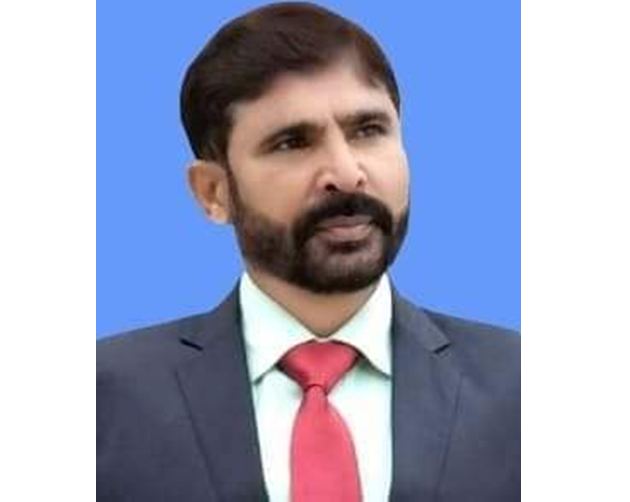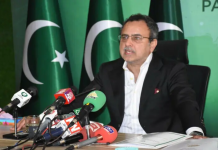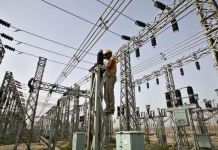Dr. Muhammad Akram Zaheer
Turkey is a nation characterized by vast territories, spanning across two continents, Europe and Asia, and occupying a crucial position in regional and international affairs. Such a role has been predetermined by Turkey’s destiny. Nonetheless, these destinies bring forth numerous challenges, both internal and external, which have a profound impact on Turkey’s destiny and identity. In May 2023, Turkey conducted its presidential elections, resulting in the re-election of Recep Tayyip Erdogan for a third term.
Erdogan is a charismatic leader who has significantly transformed Turkey’s political, economic, and social landscape since his entry into the political arena at the beginning of the second millennium. Additionally, he has pursued an assertive and ambitious foreign policy, often leading to disagreements with both allies and neighboring nations.
Currently, Erdogan faces a pressing issue in the form of an economic crisis that has plagued Turkey in recent years. The country grapples with soaring inflation rates, high unemployment, an expanding trade deficit, and dwindling foreign exchange reserves. Erdogan’s unorthodox monetary approach of maintaining low interest rates and relying on currency swaps and injections from allies has failed to stabilize the Turkish lira.
Since 2020, the lira has experienced a devaluation of over 40% against the US dollar. Numerous economists express concerns that Turkey is edging towards a balance of payments crisis unless international confidence is restored, and foreign investment is attracted.
In his third term, Erdogan has pledged to combat inflation and foster a productive economy . However, achieving this objective necessitates making arduous choices and implementing reforms. He must decide whether to raise interest rates to curb inflation and defend the lira or devalue the currency to boost exports and enhance competitiveness. Additionally, he must address structural issues within the economy, such as low savings, high debt, low productivity, and reliance on imports.
Furthermore, Erdogan must confront the social consequences arising from economic hardships, including poverty, inequality, and discontent among the urban middle class. To address this predicament, Erdogan appointed the economist Mehmet Cesmak as Minister of Treasury and Finance.Another significant challenge confronting Erdogan revolves around the refugee crisis resulting from the civil war in Syria, as well as the instability in Iraq and Afghanistan. Turkey currently accommodates over four million refugees, primarily Syrians who have fled violence and persecution in their home country.
While Turkey has received acclaim for its humanitarian response and generosity towards refugees, it has also encountered criticism and resentment from segments of Turkish society who accuse refugees of usurping employment opportunities, resources, and services intended for the local population.
Erdogan endeavors to strike a delicate balance between maintaining his humanitarian stance and responding to popular pressure for refugee deportation or resettlement. Furthermore, he has employed the refugee card as a bargaining chip with the European Union, leveraging the threat of opening borders and triggering a new wave of immigration unless Turkey receives increased financial aid and political support from Brussels. Erdogan must find a sustainable solution to the refugee crisis in his third term that respects the rights and dignity of refugees while addressing the concerns and needs of the Turkish people.
Cooperation with the international community, particularly the European Union and NATO, is essential to share the burden and responsibility of hosting and integrating refugees. Moreover, efforts must be made to facilitate the resolution of conflicts in Syria and Iraq, ensuring the preservation of peace and stability in Afghanistan.
The forthcoming municipal elections in March 2024 represent another formidable challenge for Erdogan as they will serve as a crucial test of his popularity and legitimacy.
Municipal elections hold significance as they determine the control of local administrations and services in Turkey’s major cities and regions. Furthermore, these elections reflect the prevailing sentiment and public opinion towards Erdogan’s policies and performance. In the previous municipal elections in 2019, Erdogan experienced a significant setback when the ruling Justice and Development Party lost control of Istanbul, Ankara, Izmir, and several other major cities to opposition parties.
This outcome was perceived as an indication of Erdogan’s declining popularity. Opposition parties capitalized on their victories by delivering improved services, transparency, and accountability to their constituents.
To maintain his hold on power and safeguard his legacy, Erdogan must regain the ground he lost in the upcoming municipal elections. He must regain the trust and support of urban voters, particularly the youth, women, Kurds, secular individuals, and minority groups. Addressing their grievances and demands for increased democracy, freedom, justice, and pluralism is imperative.
Erdogan must also confront a united and confident opposition bloc that challenges him on multiple fronts. Since the onset of the Syrian uprising that escalated into a civil war, Erdogan has staunchly criticized and opposed the regime of Bashar al-Assad. He has supported various rebel groups fighting against the Assad regime and engaged in military intervention in northern Syria to establish a buffer zone along the Turkish border. Erdogan has accused Assad of committing atrocities against his own people and called for his removal from power. However, Assad managed to survive and reclaim most of the territory lost to the rebels, thanks to support from Russia, Iran, and Hezbollah.
Assad has also regained some international recognition and legitimacy, as some Arab and European countries have resumed diplomatic relations with his regime. Assad has expressed willingness to engage in political dialogue and negotiations with the opposition and other stakeholders under the auspices of the United Nations.
Erdogan must determine whether to continue his adversarial approach towards Assad or alter his policy and seek reconciliation.
This decision requires a careful evaluation of the costs and benefits associated with each option in terms of security, stability, and influence in Syria. Additionally, Erdogan must take into account the perspectives and interests of his allies and partners, including Russia, Iran, NATO, and the United States, who possess differing agendas and expectations concerning Syria..
















